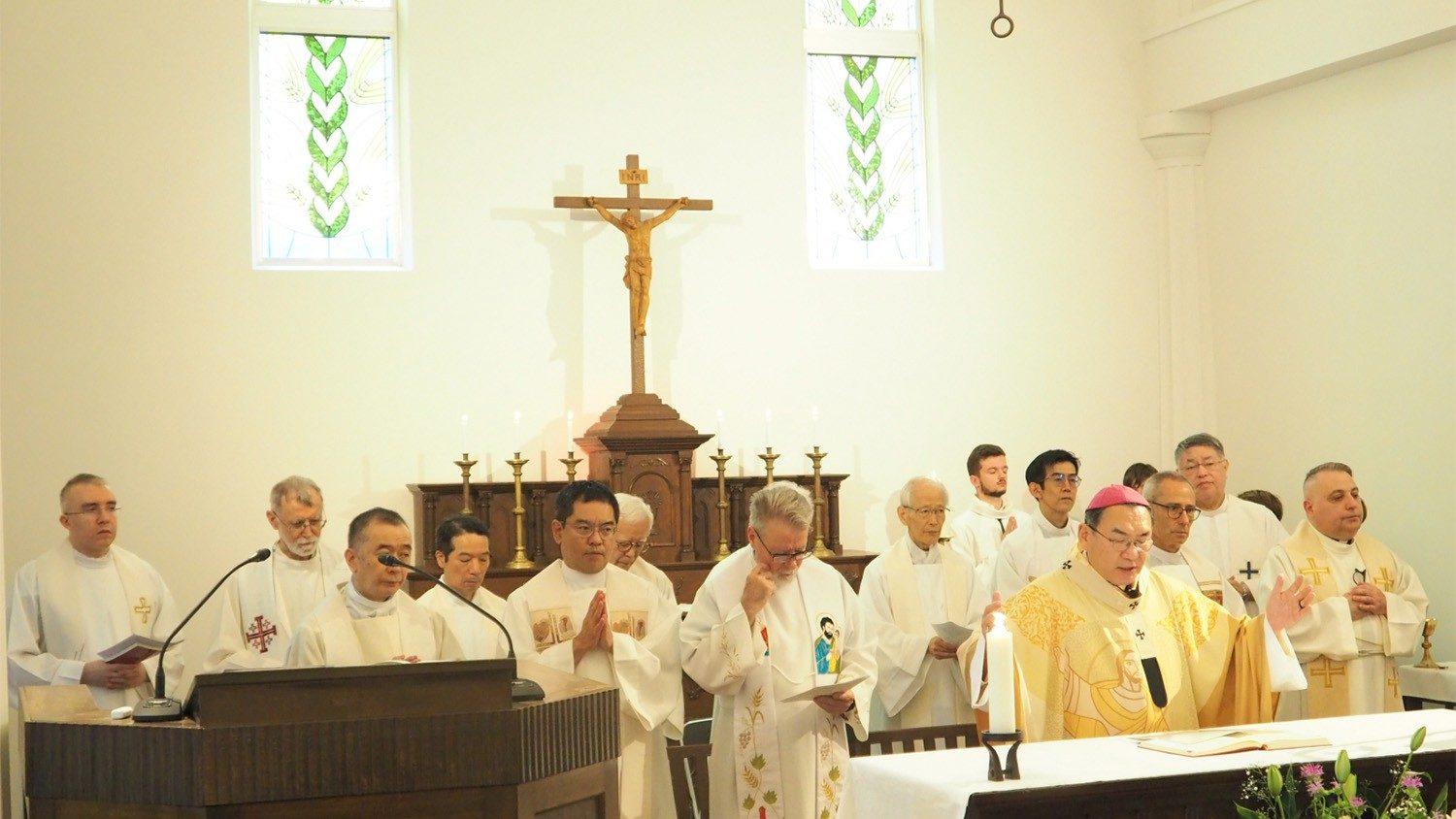MUMBAI, India – In an important expression of continuity with the legacy of Pope Francis, Japan’s top Catholic has said that the church in Asia is naturally synodal and the “synodal path” for Catholicism is one from which “no one is exempt.”
Cardinal Tarcisio Isao Kikuchi of Tokyo spoke in the wake of a Sept. 4 workshop in Osaka, Japan, for the country’s bishops and diocesan leaders presented by Cardinal Jean-Claude Hollerich of Luxembourg, who was a key architect of the 2021-2024 Synod on Synodality pioneered by the late pontiff.
Hollerich, who spent four years in Japan as a young Jesuit missionary and learned the language, delivered his remarks in Japanese.
Afterwards, Kikuchi said the bishops and other church officials were deeply receptive.
“The synodal path is the way to be which Our Father desires of us, and because of this very reason, no in the church is exempt from this path,” the 66-year-old prelate said.
“It is quite a rough, ambiguous and difficult path to find and go through,” Kikuchi conceded, while insisting it’s nevertheless essential.
The three-year synodal process over which Francis presided, Kikuchi said, including two month-long assemblies in Rome of bishops, clergy, religious and laity, was not a “one-time event” but rather “the beginning of a new journey for the People of God.”
While most intimately associated with the legacy of Pope Francis, Pope Leo XIV has also pledged his support for a synodal approach to church life.
“The legacy [Francis] has left us, in my view, is above all this: that synodality is a style, an attitude that helps us to be Church by promoting authentic experiences of participation and communion,” he said in a June meeting with the Ordinary Council of the General Secretariat of the Synod of Bishops.
Kikuchi said Asia is especially suited for a synodal approach, since it’s a minority in virtually all of the region’s great cultures and has been compelled over the years to develop a listening, dialogic approach.
“In my opinion, it would be true that Asian culture is especially suited for synodality as the Federation of Asian Bishops Conferences, based on its observations of Asian culture, has proposed as its core approach three dimensions of dialogue: With peoples, especially the poor, with cultures, and with religions,” Kikuchi said.
“We are to engage in dialogue in order to survived,” Kikuchi said of the Asian context.
What’s true of the region generally, he said, is also characteristic of Japan specifically, where a basically synodal approach to church life has deep roots even without necessarily using that vocabulary.
In the 1980s, Kikuchi said, the Japanese church staged a “National Evangelization Convention,” out of which came a conviction of the necessity of being a “mission-minded” church. That included an approach to internal ecclesiastical life, as well as to engaging the broader culture, based on active listening and deep dialogue.
“The Japanese Catholic Church had already started its synodal way in 1980’s,” Kikuchi said, “so that what the universal church is trying to implement now is not new for many here, but a very good reminder of what we decided years ago.”
“The synodal path is inviting Japanese Catholics to revisit what we have been trying to achieve and revive it to continue our communion, participation, [and] mission in Japan,” he said.
Following Hollerich’s presentation in Osaka, participants were divided into five small groups for an exercise in “conversation in the spirit,” mimicking the approach to table-based conversation among stakeholders pioneered during the two synodal assemblies in Rome in October 2023 and 2024.












